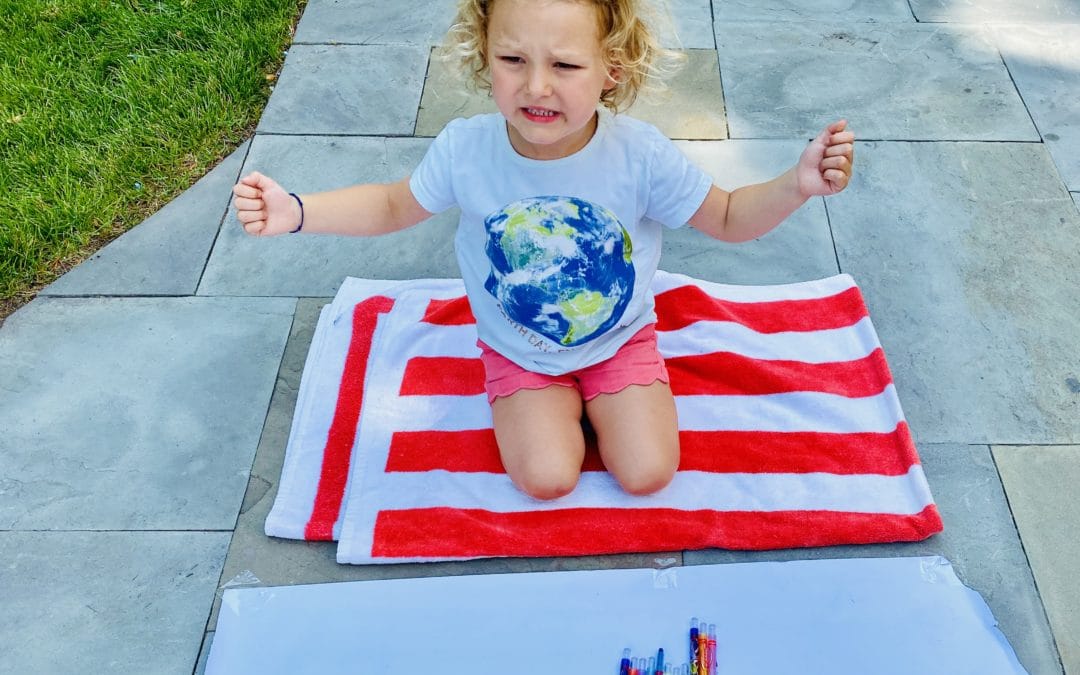In reality, it doesn’t feel amazing for kids. Tantrums are the result of experiencing anger, frustration, sadness or disappointment (among other feelings). These feelings boil up inside our young friends and without established emotional regulation skills- BOOM! They explode.
Below you will find a few strategies to use mid-tantrum. These are not preventative measures or tools to be used for a little hiccup or outburst. These are tactics for the “full-blown”, sprawled out on the grocery store floor, fiery explosion of a tantrum or meltdown. If you haven’t experienced it (yet), you have likely seen one.
Here are three strategies to experiment with:
- Take a deep breath yourself. Approaching the child with heightened anxiety/anger/frustration is only going to fuel the tantrum fire. It is best to take a few moments to speak to yourself with kindness and THEN re-approach your child with compassion and understanding.
- Relocate. If it is a massive melt-down with thrashing/kicking/hitting/biting prioritize relocating to a quiet, safe, and smaller space that is contained. The boundaries of a smaller space (playroom, bedroom,ect) can help a child feel safer than being in a wide-open space or surrounded by other people. Calmly wrap your arms around your child and carry them inside. They may thrash and throw their bodies backwards. Continue taking deep breaths yourself and reinforce your actions with words, “I am taking you into the playroom. I am here to help”. Again- try to keep calm and not react. (TRY is the keyword…this is hard, be gentle with yourself!). Be consistent and hold the boundary. Do not give in to whatever is causing the tantrum; this will only reinforce the behavior.
- Sit with your child and reinforce the emotional regulation by remaining calm. Let them know they are not in trouble and relocating is not punishment. Continue to tell them, “I am your parent, I love you and am here to help”. Speak softly to your little and do not deny the feelings, “I understand you are sad for xyz reason, I know that is hard and I am here for you.” Hold them safely in your arms and offer hugs when they are ready. As the moment begins to de-escalate, encourage deep breathing or breathing together.
IMPORTANT for the post melt-down moments:
Post-meltdown ensure that your child hears (Loud and Clear) there is nothing they could do and nothing they could say that will ever change how much you love them. Moments of tantrum, meltdown, or upset open the door for you to affirm that you are a consistent and dependable presence in their life and in these moments secure attachment is formed. Children attach themselves to shame if you do not reinforce that your child is a good person who acted in a bad way for a moment. Remind them they are LOVE-ABLE even in difficult moments.
This is hard! Parenting is a learning process and everyone enters it with their own feelings, experience and triggers. Be kind to yourself and KNOW you can make changes to the interactions…now is the time to take the first step!


